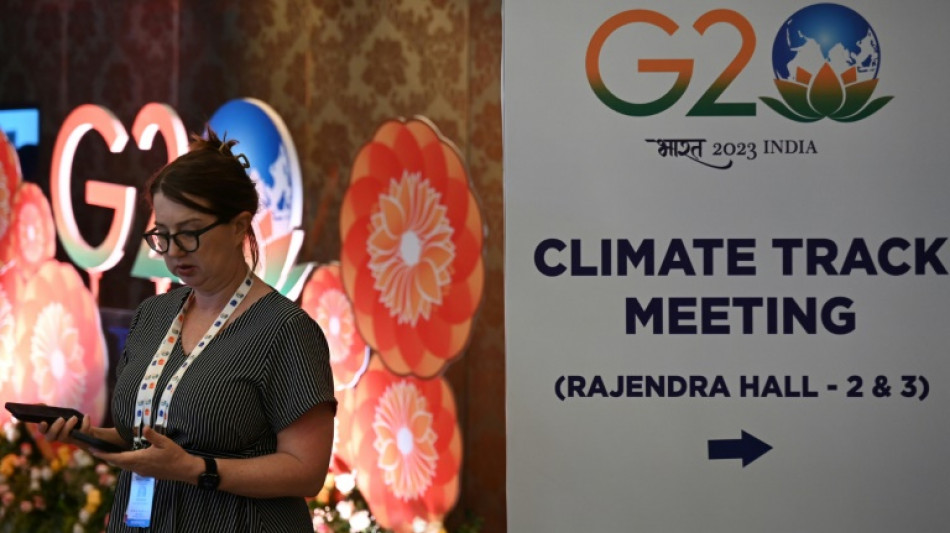
SCS
0.0200


Environment ministers from G20 nations failed to agree on peaking global emissions by 2025 and other crucial issues to address the global climate crisis at their meeting in India on Friday, France's representative said.
No breakthrough was possible on several key points ahead of this year's COP28 climate talks, with negotiations also failing to reach a consensus on drastically scaling up renewable energy use.
"I am very disappointed," France's ecological transition minister Christophe Bechu told AFP after the meeting.
"We are not able to reach an agreement of increasing drastically renewable energies, we are not able to reach an agreement on phasing out or down fossil fuels, especially coal," he said.
"Records of temperatures, catastrophes, giant fires, and we are not able to reach an agreement on the peaking (of) emissions by 2025."
The discussions with China, Saudi Arabia, and on climate issues with Russia had been "complicated", he added.
The Chennai meeting comes days after energy ministers from the bloc -- which represents more than 80 percent of global GDP and CO2 emissions -- failed to agree on a roadmap to cut fossil fuels from the global energy mix.
That was seen as a blow to mitigation efforts even as climate experts blame record global temperatures for triggering floods, storms and heatwaves.
Some major oil producers -- such as Russia and Saudi Arabia -- were blamed for the lack of progress.
All present at Friday's conference understood "the severity of the crisis" facing the world, Adnan Amin, chief executive of this year's COP28 climate talks, told AFP.
"But I think there's a kind of political understanding that still needs to be achieved," he added.
Amin said it was clear that questions of "national interests" still had to be resolved before firmer commitments could be made on fossil fuels.
"It's very clear that every country in the world will start by looking at its immediate self-interest," he said.
Most delegations were led by their environment and climate change ministers, while the US delegation was headed by Special Presidential Envoy for Climate John Kerry.
Also at the talks was Emirati oil boss Sultan Al Jaber, who will lead the upcoming COP28 talks in the United Arab Emirates starting in late November.
He has been heavily criticised for his apparent conflict of interest as head of the Abu Dhabi National Oil Company because burning fossil fuels is the main driver of global warming.
- Livelihoods destroyed -
With raging wildfires in Greece and a heatwave in Italy, European Union environment commissioner Virginijus Sinkevicius said ahead of the gathering that there was "growing evidence on the ground of devastating climate impact" and "the livelihoods of people are being destroyed".
But progress in global negotiations has been slow, with the G20 polarised by Russia's war in Ukraine and sharp divisions on key issues.
Questions on financing the transition and ameliorating its short-term impacts have long been a point of contention between developing and wealthy nations.
Major developing countries like India argue that legacy emitters need to spend more to underwrite global mitigation efforts in poorer nations.
Big energy-producing nations have resisted stronger commitments on emissions cuts over concerns about the impact of drastic mitigation on their economies.
L.Kwan--ThChM